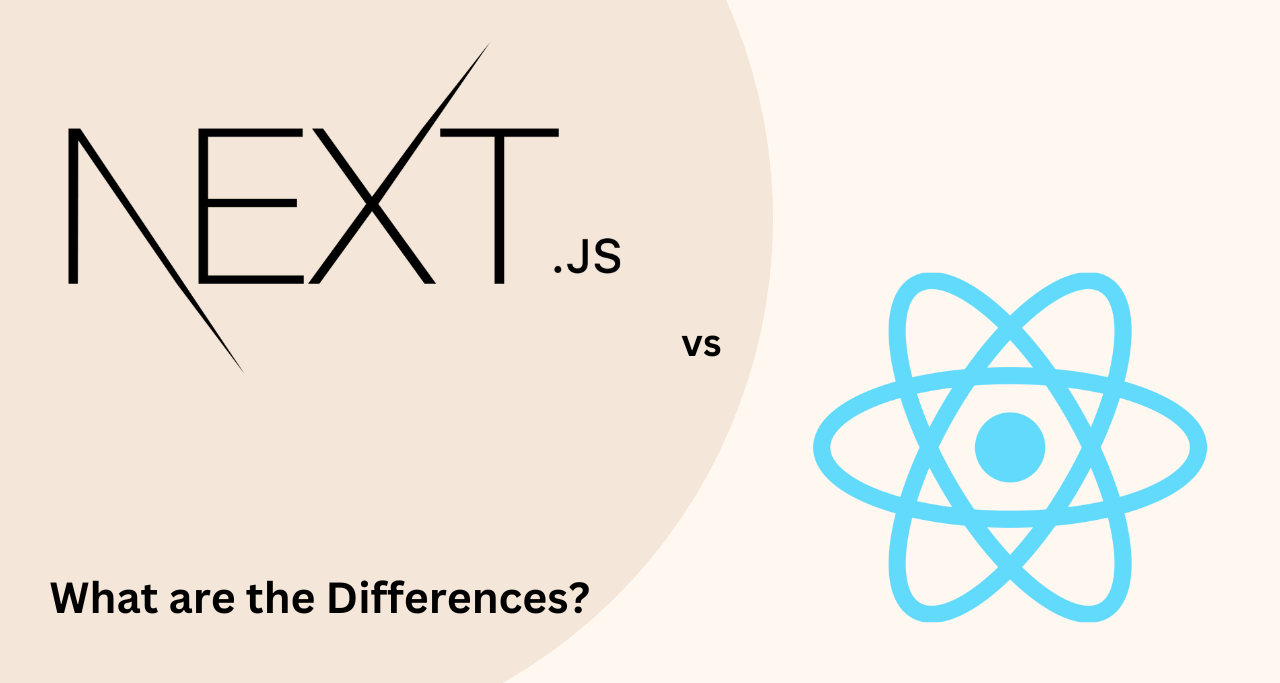In the dynamic realm of web development, choosing the right framework is a pivotal decision that can significantly impact your project’s success. React, developed by Facebook, and Next.js, a framework built on top of React, are two powerful contenders in this space.
In this comprehensive guide, we’ll explore the distinctions between Next.js and React, helping you make an informed choice for your web development endeavours.

Understanding React and Next.js:
React:
React, a JavaScript library, is renowned for building user interfaces with a component-based architecture. Its declarative approach to building UI components makes it a go-to choice for developers aiming to create scalable and interactive applications.
Next.js:
Next.js, on the other hand, is not a replacement for React but a framework that enhances React applications. Developed by the creators of React, Next.js introduces features like server-side rendering (SSR) and static site generation (SSG), providing a structured approach to building React applications.
Key Differences:
1. Server-Side Rendering (SSR) and Static Site Generation (SSG):
- React:
- React primarily focuses on client-side rendering, where the rendering process occurs in the browser.
- Next.js:
- Next.js introduces server-side rendering and static site generation, improving performance and SEO by rendering pages on the server before sending them to the client.
2. Routing:
- React:
- React relies on third-party libraries or manual configuration for routing.
- Next.js:
- Next.js simplifies routing with a file-based system in the ‘pages’ directory, reducing the need for additional routing configuration.
3. Project Structure:
- React:
- React leaves project structure decisions to developers, allowing flexibility but requiring manual setup.
- Next.js:
- Next.js enforces a convention-based project structure, promoting consistency and reducing configuration efforts.
4. File-Based Routing:
- React:
- In React, developers need to manage routing manually, leading to potential complexity.
- Next.js:
- Next.js adopts a file-based routing system, where each file in the ‘pages’ directory corresponds to a route, simplifying navigation.
5. SEO Optimization:
- React:
- React applications may require additional effort for SEO optimization due to client-side rendering.
- Next.js:
- Next.js excels in SEO with built-in support for server-side rendering, providing search engines with fully-rendered HTML pages.
Choosing the Right Framework:
Considerations:
- Project Requirements:
- Evaluate the need for server-side rendering or static site generation based on your project’s goals.
- Development Speed:
- Next.js’s convention-based approach can expedite development, especially for smaller projects.
- SEO Importance:
- If SEO is a critical factor, Next.js’s built-in SSR capabilities may be advantageous.
Conclusion:
In the Next.js vs React debate, the choice ultimately depends on the specific needs of your project. React remains a robust library for client-side rendering, while Next.js extends its capabilities with server-side rendering and a structured project setup.
Assess your project requirements, development preferences, and SEO considerations to make an informed decision that aligns with your goals.
Final Thoughts:
As the landscape of web development continues to evolve, both React and Next.js stand as pillars of innovation.
Whether you opt for React’s flexibility or harness Next.js’s streamlined features, the key is to choose the framework that best complements your project’s unique requirements.
With this guide, you are now equipped to navigate the nuanced differences between Next.js and React, making a well-informed decision for your next web development venture.




